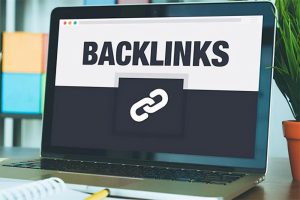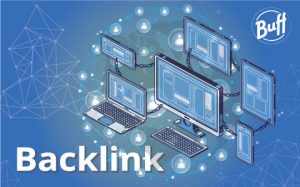Introduction
Hey there! Let’s dive into the fascinating world of backlink indexing. If you’re managing a website or interested in SEO, understanding backlink indexing is crucial. You see, backlinks are like votes of trust from one website to another. They signal to search engines that your content is valuable and worth referencing. But here’s the kicker—if these backlinks aren’t indexed by search engines, they might as well be invisible.
Think of backlink indexing as the unsung hero of search engine optimization (SEO). While backlinks are the stars that boost your website’s ranking, indexing ensures they shine brightly in the vast digital universe. Without indexing, your backlinks are like whispers in a crowded room—hardly heard and easily overlooked. So, let’s unravel the mystery behind backlink indexing and why it’s a game-changer for your online presence.

Understanding Backlinks
Before diving into indexing, let’s get a grip on what backlinks are. Imagine you’re reading a blog post about the best coffee shops in New York, and there’s a link that leads you to a specific café’s website—that’s a backlink. These links are crucial because search engines like Google consider them as votes of confidence. The more quality backlinks you have, the more authoritative your website appears.
Backlinks can be categorized into several types, such as:
- Natural Links: These occur organically when other sites link to your content because they find it valuable.
- Manually Built Links: These are acquired through deliberate link-building strategies, such as outreach or partnerships.
- Self-Created Links: These are links you create manually, for example, in blog comments or forum posts, and are often considered less effective.
Understanding the different types of backlinks is essential because not all links are created equal. Search engines weigh them differently based on their origin and context.
Importance of Backlink Indexing
Now, you might have a ton of backlinks, but if they’re not indexed, they’re practically invisible to search engines. In the vast ocean of the internet, indexing is like a lighthouse guiding search engines to your links. It ensures that search engines recognize and count your backlinks, ultimately affecting your site’s ranking. Not indexed? It’s like having a fancy car with no fuel—looks great but won’t get you anywhere.
When a backlink is indexed, it means that search engines have acknowledged its existence and added it to their database. This is crucial because indexed backlinks contribute to your website’s authority, helping it climb the ranks in search engine results pages (SERPs). In contrast, non-indexed backlinks are like hidden treasures—valuable but hidden from the world.
How Search Engines Use Backlink Indexes
Search engines crawl the web like little spiders, collecting data on countless web pages and links. They store this info in their indexes, a massive database that helps them quickly retrieve relevant pages when someone searches online. Backlink indexes specifically help search engines understand the relationship between sites and determine which pages are most relevant and authoritative. In essence, they’re like a complex network of webs where each link plays a role in the grand scheme of things.
When search engines crawl a webpage, they analyze the links on that page to understand its context and relevance. They look at factors like the anchor text, the surrounding content, and the linked page’s authority. This analysis helps search engines build a comprehensive index of backlinks, which they use to evaluate the credibility and authority of the linked pages.
Factors Affecting Backlink Indexing
Quality of Links
Not all backlinks are created equal. Search engines prioritize links from reputable, high-authority sites. It’s like getting a recommendation from a trusted friend rather than a random stranger. High-quality backlinks are more likely to be indexed and contribute positively to your site’s SEO.
Quantity vs. Quality
While having many backlinks can be beneficial, quality trumps quantity. It’s better to have a few high-quality links than a multitude of low-quality ones. Search engines focus on the relevance and authority of the linking site, so a well-placed link from a reputable site can be more valuable than numerous links from low-quality sites.
Relevance and Context
Links should be contextually relevant. A backlink from a related industry site carries more weight than one from an unrelated niche. Imagine getting cooking advice from a chef versus a mechanic. Search engines assess the context in which a link appears, considering factors like the surrounding content and the relationship between the linking and linked sites.
Tools for Backlink Indexing
Google Search Console
This free tool from Google helps you monitor your site’s presence in search results. It’s like having a dashboard for your website’s health. Google Search Console provides insights into which pages are indexed, how they appear in search results, and which sites link to them. It’s an invaluable tool for tracking your backlink indexing status.
Ahrefs
Known for its robust backlink analysis features, Ahrefs can help you track which of your backlinks are indexed. It’s like having a magnifying glass for your link profile. Ahrefs provides comprehensive data on your backlinks, including their indexing status, authority, and anchor text distribution. This information helps you optimize your backlink strategy for better indexing and SEO performance.
SEMrush
Another powerful tool offering insights into your backlinks and their indexing status. Think of it as your digital marketing Swiss Army knife. SEMrush provides detailed reports on your backlink profile, allowing you to identify which links are indexed and which are not. It also offers suggestions for improving your backlink strategy and increasing your site’s visibility in search results.
Strategies to Improve Backlink Indexing
Improving backlink indexing is a bit like fine-tuning a musical instrument. You need the right techniques and ongoing attention to ensure your backlinks are working harmoniously to boost your SEO. Here are some strategies to help you optimize your backlink indexing.
Content Creation
Quality content acts as a magnet for backlinks. When you produce engaging, informative, and original content, other websites are more inclined to link back to your site. Think of this as crafting a masterpiece that people can’t resist sharing. The more valuable your content, the more likely it will attract high-quality backlinks, which are more likely to be indexed by search engines.
Link Building Techniques
Engaging in ethical link-building strategies is crucial. Techniques like guest posting, outreach, and forming partnerships with other websites can help you build a robust backlink profile. Imagine it as networking at a conference—building genuine relationships can lead to valuable connections. Be sure to focus on obtaining links from relevant and authoritative sites, as these are more likely to be indexed and positively impact your site’s SEO.
Regular Monitoring
Regularly monitoring your backlinks is like tending to a garden. You need to keep an eye on what’s growing, prune the weak links, and nurture the strong ones. Use tools like Google Search Console, Ahrefs, and SEMrush to track your backlinks and their indexing status. Regular monitoring helps you identify issues early and take corrective action, ensuring that your backlinks remain an asset rather than a liability.
Common Challenges and Solutions
Navigating the world of backlink indexing isn’t without its challenges. However, understanding these challenges and knowing how to address them can make all the difference.
Dealing with Low-Quality Links
Sometimes, your site might attract spammy or low-quality links, which can harm your site’s reputation and indexing status. To deal with such links, consider using Google’s Disavow Tool. It’s like pruning dead leaves to keep your plant healthy. By disavowing low-quality links, you inform search engines that you prefer not to associate your site with these links, protecting your site’s SEO and indexing status.
Avoiding Penalties
Engaging in black-hat SEO practices, such as buying links or participating in link schemes, can lead to penalties from search engines. These penalties can severely impact your site’s ranking and indexing status. To avoid penalties, stick to white-hat techniques, which prioritize ethical link-building practices and quality content creation. It’s like playing by the rules to keep the game fair and ensure long-term success.
Future Trends in Backlink Indexing
As technology evolves, so too does the landscape of backlink indexing. Staying ahead of future trends can give you a competitive edge in the ever-changing world of SEO.
AI and Machine Learning
Artificial intelligence (AI) and machine learning are revolutionizing how search engines understand and index backlinks. These technologies allow search engines to analyze links with greater precision, considering factors like user engagement and content relevance. Think of AI and machine learning as futuristic glasses, providing deeper insights and more accurate indexing. As these technologies advance, we can expect even more sophisticated methods for evaluating and indexing backlinks.
Evolving Algorithms
Search engine algorithms are constantly evolving, adapting to new trends and technologies. Staying updated on algorithm changes is crucial for maintaining your site’s indexing status and SEO performance. Imagine keeping up with the latest in fashion to stay relevant—staying informed about algorithm updates helps you adjust your strategies and ensure your backlinks continue contributing positively to your site’s visibility.
Conclusion
Backlink indexing might seem complex, but it’s an essential part of SEO that can significantly enhance your website’s visibility and authority. By understanding and optimizing your backlinks, you can boost your site’s ranking and ensure that your valuable links are seen and valued by search engines. Remember, it’s not just about having links but ensuring they’re indexed and contributing positively to your site’s SEO.




